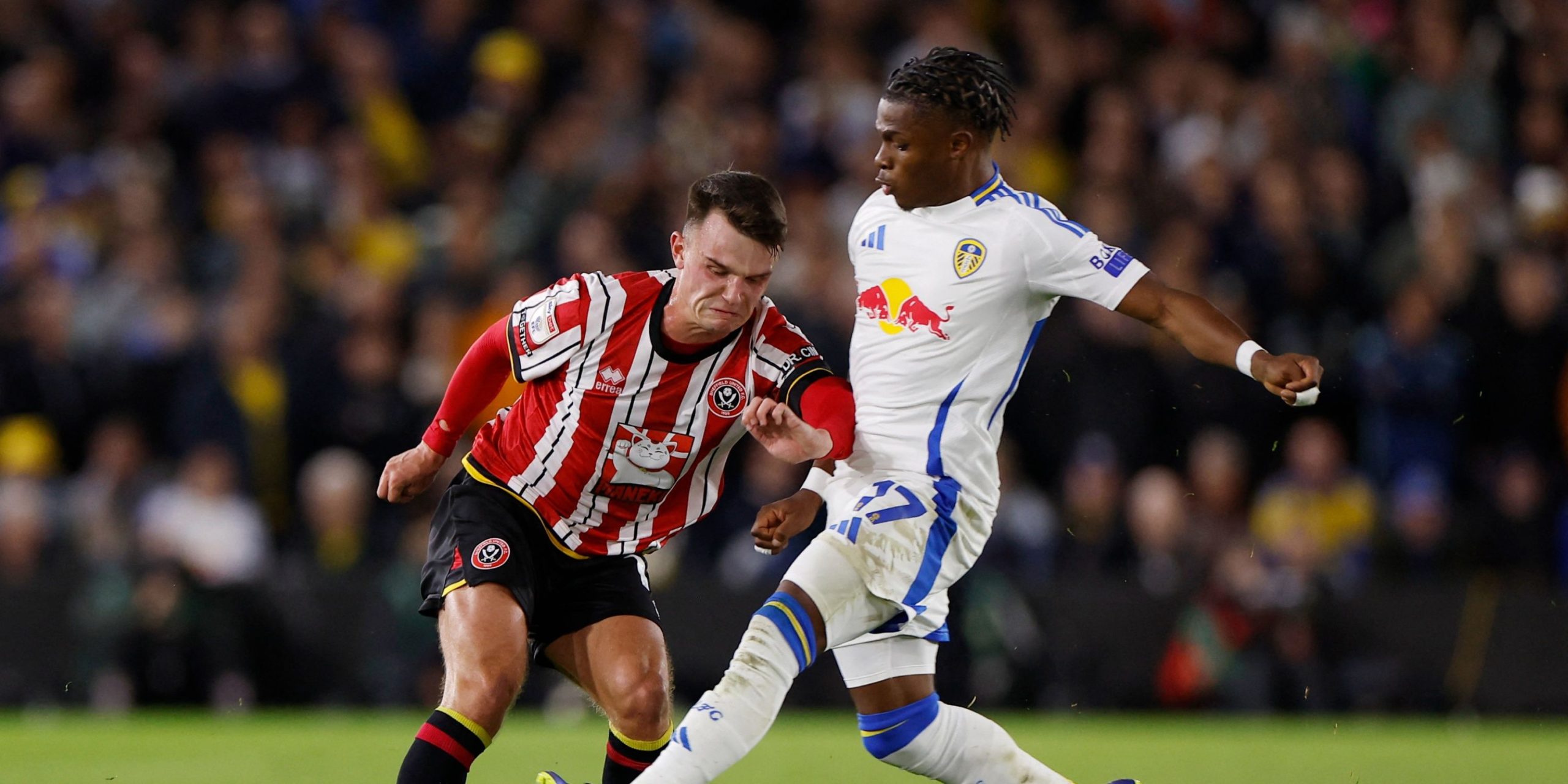Leeds United’s return to the Premier League has been anything but quiet.
Following their 100-point Championship campaign, the 49ers Enterprises ownership backed Daniel Farke heavily in the transfer market, landing a string of ambitious signings.
Players such as Lucas Perri, Sean Longstaff, James Justin, and Dominic Calvert-Lewin all arrived.
Yet it was not just arrivals that made headlines.
Key exits included Rasmus Kristensen, Maximilian Wöber, Junior Firpo, and perhaps most controversially, Largie Ramazani.
The Belgian winger had been a lively outlet during last season’s promotion push, but he was loaned to Valencia for the campaign – a move that left many supporters questioning whether Leeds had weakened their wide options.
With the club still finding its Premier League rhythm, the debate over whether Ramazani should have stayed has grown louder.
Why Leeds were right to let Ramazani go out on loan
Ramazani’s departure on a temporary basis is a curious subplot to Leeds’ summer.
The 24-year-old Belgium youth international only joined from Almería last year but quickly carved out a role in the promotion campaign.
Featuring 29 times in the Championship, he produced six goals and two assists, his pace and directness often unsettling second-tier defences.
With a market value of £6m, as per Transfermarkt, he represented a player in his prime years, and one many fans saw as ready for the next level.
A natural left-winger, Ramazani’s main strengths lie in stretching defences and committing opponents one-on-one.
His energy and willingness to run beyond meant he was often the difference maker in tight games.
On loan at Valencia, he has featured twice, offering the same blend of direct dribbling and counter-attacking thrust that made him popular at Elland Road.
Yet beneath the surface numbers, Ramazani’s output was limited at Championship level, suggesting that he may well have struggled up a division too.
His nine goal involvements across 30 matches last season, while respectable, were rarely decisive in big moments.
That is part of the reason Leeds sanctioned his loan, particularly given the scale of their recruitment drive and the emergence of an arguably bigger talent in the same position.
The answer to Leeds' wide problems
If Ramazani represented a promise unfulfilled, Noah Okafor offers a more complete package.
Signed from AC Milan for £18m, the 25-year-old Switzerland international arrived with a pedigree built across Europe.
His journey has taken him from FC Basel to RB Salzburg, where he developed a reputation as an explosive forward in the Champions League, before stints at Napoli and Milan.
Last season he featured 11 times in Serie A, scoring once, and added five appearances on the European stage.
Okafor is not simply a winger who hugs the touchline. Described by scout Jacek Kulig as “electric”, he combines agility and power with two-footed balance, close control and an ability to beat players in tight spaces.
Chalkboard
Football FanCast’s Chalkboard series presents a tactical discussion from around the global game.
Crucially, he is also far more rounded than Ramazani: his defensive work rate, progressive carrying and ambidextrous dribbling make him suited to both high-pressing and counter-attacking systems.
The statistical comparison already tilts in his favour.
Matches Played
15
Minutes
454
Goals
1
Progressive Carries
28
Progressive Passes
13
Last season, Okafor produced 5.60 progressive carries per 90 compared to Ramazani’s 4.61, while also averaging more shot-creating actions (3.50 to 2.97).
A carry is considered progressive if the ball is moved towards the opponent’s goal at least 10 yards from its starting point or is carried into the penalty area.
He hits the target more frequently too, with 1.83 shots on target per 90 compared to Ramazani’s 1.39.
Although Ramazani leads for goal involvements (nine to Okafor’s one), the Swiss forward’s underlying numbers point towards far greater efficiency once settled in the Premier League.
Another area where Okafor stands out is ball progression.
His 25.2 carries per 90 reflect how central he is to advancing possession, while his blend of strength and control ensures he can both hold play up and drive past opponents.
Ramazani’s raw pace is useful, but Okafor provides a wider range of tools that make him harder to defend against at elite level.
Okafor’s European experience is another clear distinction. Having faced Champions League knockout ties and Serie A defences, he arrives at Elland Road with a level of maturity that Ramazani is yet to prove.
His display at the weekend gave a glimpse of what he can bring: direct running, creative spark, and a physical presence Leeds have lacked in wide areas.
For Leeds, the decision to let Ramazani leave now looks less risky.
While the Belgian may yet prove his worth in La Liga, Okafor already appears capable of offering Premier League quality.
In a squad balancing survival with ambition, having a winger of Okafor’s calibre may prove the smarter investment.









